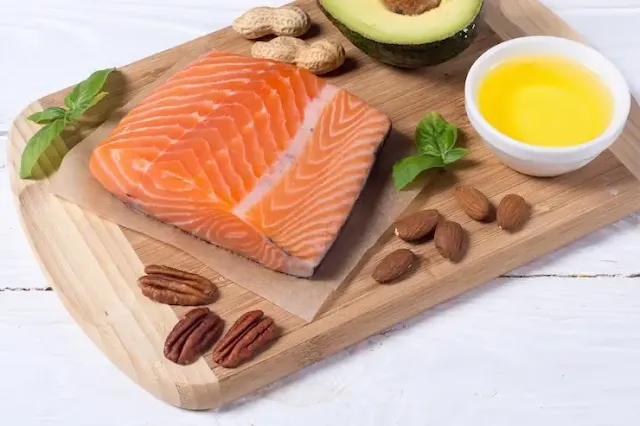In the quest for a balanced and healthy lifestyle, we often encounter various deficiencies that can affect our overall well-being. One such deficiency that has gained attention in recent years is the lack of vitamin B12.
 |
| ?salmon b12 - Is salmon good for B12 deficiency |
This vital vitamin plays a crucial role in keeping our nerve cells healthy and aiding in the production of DNA, the genetic material in all of our cells. A deficiency in B12 can lead to an array of health issues, ranging from fatigue and weakness to neurological problems. In this article, we will explore whether salmon, a popular and nutritious fish, can be a good solution for B12 deficiency.
Understanding the Importance of Vitamin B12
B12, also known as cobalamin, is an essential vitamin that cannot be produced by our bodies. It is primarily found in animal-based food products like meat, fish, eggs, and dairy. Vitamin B12 is necessary for the formation of red blood cells and in maintaining a healthy nervous system. It also plays a significant role in the synthesis of DNA and other genetic materials. Insufficient B12 levels can result in anemia, nerve damage, and cognitive impairments.
The Benefits of Including Salmon in Your Diet
Salmon is a fatty fish that is known for its exceptional nutritional profile. It is rich in omega-3 fatty acids, high-quality protein, and essential vitamins and minerals, including vitamin B12. Incorporating salmon into your diet provides numerous health benefits beyond just combating B12 deficiency. The omega-3 fatty acids found in salmon have been linked to improved heart health, reduced inflammation, and enhanced brain function. Additionally, the protein in salmon helps build and repair tissues, supports immune function, and aids in muscle recovery.
Salmon: A Natural Source of Vitamin B12
One of the most significant advantages of salmon is its high content of vitamin B12. A 3-ounce serving of cooked salmon provides approximately 2.4 micrograms of B12, which fulfills the recommended daily intake for adults. This makes salmon an excellent choice for those looking to replenish their B12 levels naturally. By including this fish in your diet, you can enjoy the numerous health benefits associated with B12 while savoring a delicious meal.
Ensuring Sufficient B12 Intake Through Salmon Consumption
To effectively combat B12 deficiency, it is crucial to incorporate salmon into your diet regularly. Here are a few tips to ensure you receive an adequate amount of vitamin B12 through salmon consumption:
1. Choose Wild-Caught Salmon: Opt for wild-caught salmon as it tends to have a higher nutritional profile compared to farm-raised salmon. Wild salmon feeds on a natural diet, which contributes to its omega-3 fatty acid and B12 content.
2. Cook Salmon Properly: Cooking salmon properly helps retain its nutritional value. Grilling, baking, or steaming salmon are healthier options compared to deep-frying, as excessive heat can degrade some essential nutrients, including B12.
3. Include Salmon in Weekly Meal Plans: Aim to include salmon in your weekly meal plans to consistently benefit from its B12 content. This can be achieved through simple recipes like grilled salmon fillets, salmon salads, or baked salmon with a side of vegetables.
4. Consider Other B12 Sources: While salmon is an excellent source of B12, it's essential to diversify your diet and incorporate other foods rich in this vitamin. This may include lean meats, dairy products, eggs, and fortified cereals or nutritional yeast for vegans and vegetarians.
-Can salmon alone provide enough B12 to overcome a deficiency?
While salmon is an excellent source of vitamin B12, it's essential to combine it with a balanced diet that includes other B12-rich foods. Additionally, individuals with severe B12 deficiency might require supplements as advised by healthcare professionals.
-Can you overconsume salmon for B12?
Consuming excessive amounts of salmon may not necessarily lead to B12 toxicity since it is a water-soluble vitamin. However, it's always advisable to maintain a balanced diet and consult with a healthcare professional if you have any concerns.
- Are there any risks associated with eating too much salmon?
While salmon is generally considered safe and nutritious, it is crucial to be mindful of potential contaminants like mercury and polychlorinated biphenyls (PCBs). Pregnant women and individuals at higher risk can consult their healthcare providers for guidance on safe consumption levels.
-Can vegans and vegetarians get enough B12 through salmon alternatives?
Salmon alternatives, such as fortified plant-based milk, nutritional yeast, and certain algae-based products, can help vegans and vegetarians meet their B12 requirements. However, it's advisable to consult with a healthcare professional or registered dietitian to ensure sufficient B12 intake.
-Is there a specific cooking method to retain the highest B12 levels in salmon?
While cooking salmon through various methods can retain its B12 content, it's important to avoid excessive heat, as it may degrade the nutrient value. Methods like grilling, baking, or steaming are recommended for maximum nutrient retention.
Salmon, with its abundance of vitamin B12, offers a delicious and nutritious solution for individuals dealing with B12 deficiency. By incorporating this fatty fish into your diet regularly, you can reap the benefits of B12 along with essential omega-3 fatty acids and high-quality protein.
Remember to complement salmon consumption with a balanced diet and consult with a healthcare professional if you suspect any deficiencies or have specific dietary restrictions. Embrace the richness of salmon and let it play a vital role in supporting your overall well-being.
